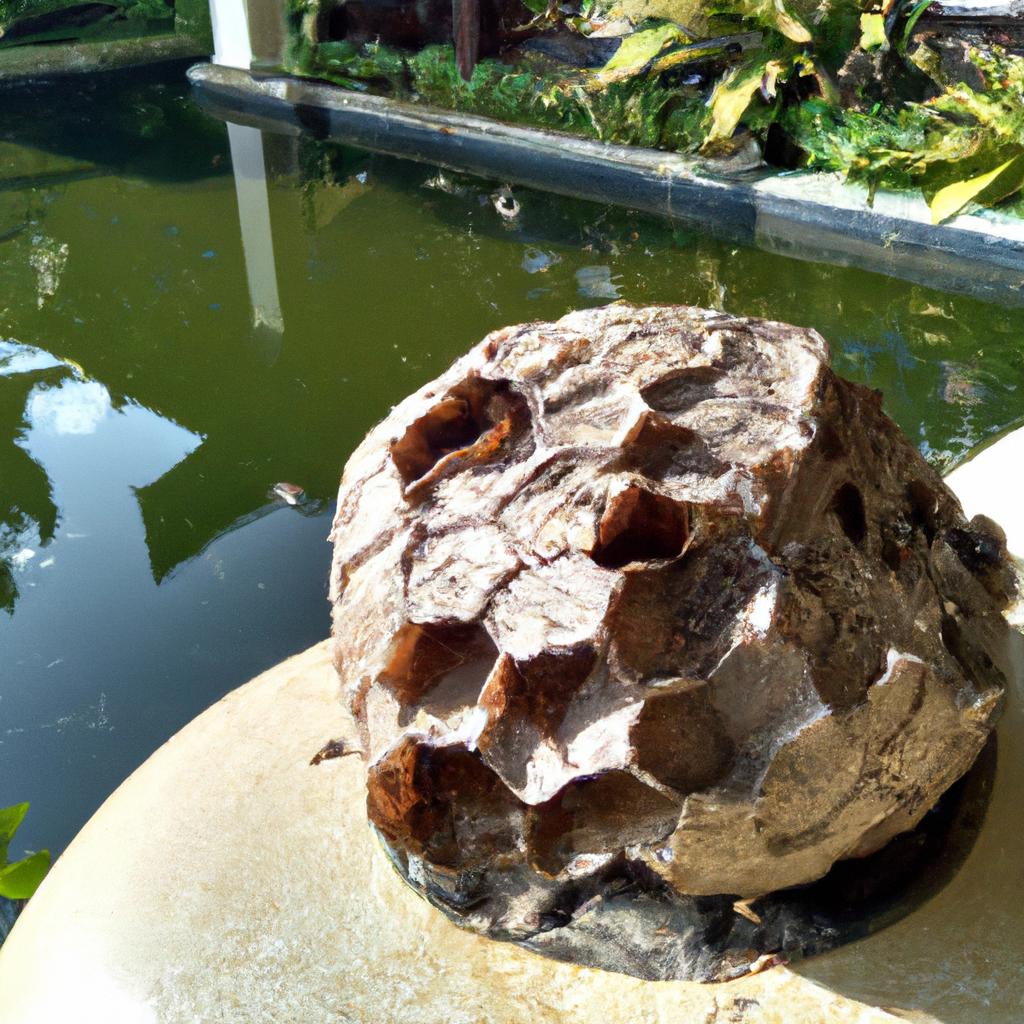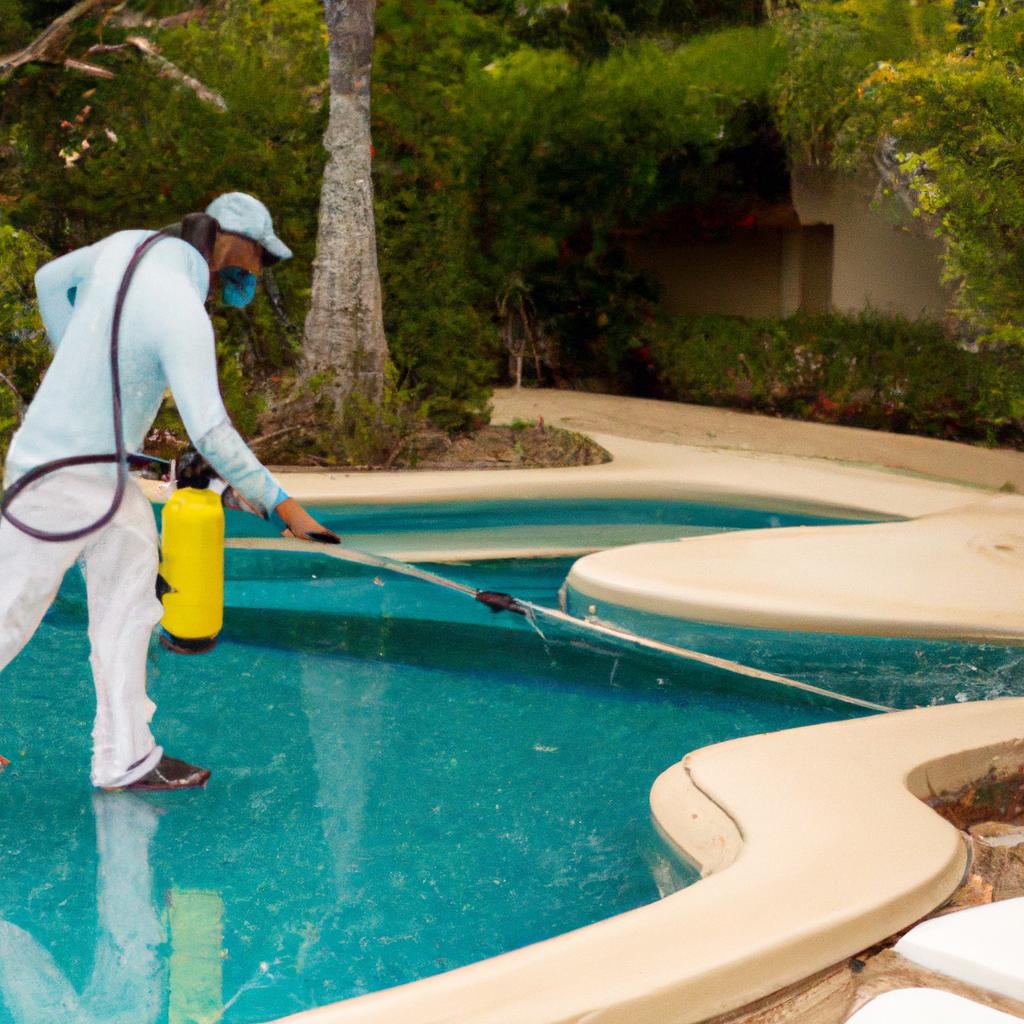Are you tired of sharing your pool with pesky wasps? Not only are they annoying, but they can also be dangerous, especially for those who are allergic to their stings. Fortunately, there are several ways to get rid of wasps in the pool area and prevent them from returning.
In this article, we will discuss the types of wasps that may be found in the pool, how to identify their nests, and prevention measures to keep wasps away. We will also cover the treatment options available to eliminate wasps from the pool area.
Understanding Wasps

Before we delve into how to get rid of wasps in the pool, it’s important to understand the different types of wasps that may be present. The most common types of wasps found around pools are paper wasps, yellow jackets, and hornets.
Paper wasps are brownish-yellow with long legs and a slender waist. They often build their nests in sheltered areas such as eaves, attics, and under decks. Yellow jackets are black with yellow markings and are known for their aggressive behavior. They typically build their nests in the ground or in cavities such as hollowed-out trees. Hornets are black with white or yellow markings and are larger than yellow jackets. They also have a more painful sting and build their nests in trees or on buildings.
When wasps come into contact with water, they become disoriented and may struggle to fly. This makes them vulnerable to drowning, which is why they are often found in pool areas. However, some wasps can survive for several hours in the water, so it’s important to take appropriate measures to keep wasps away from the pool.
To avoid getting stung, it’s best to stay away from wasps and their nests. If you need to approach the nest to get rid of them, it’s best to do so at night when they are less active. Always wear protective clothing and use caution when dealing with wasps.
Now that we’ve covered the basics of wasps, let’s move on to identifying their nests.
Identifying the Nest

It’s essential to identify the location of the wasp nest to effectively get rid of wasps in the pool area. Signs of a wasp nest near the pool may include an increase in wasp activity, visible nests in nearby trees or buildings, or an increase in wasp sightings in the area. If you notice any of these signs, it’s important to take action before the problem gets worse.
To locate the nest, follow the flight path of the wasps. They will typically fly in a straight line from the nest to their food source. You can also look for the nest in areas where wasps are commonly found, such as eaves, attics, and trees. Once you’ve located the nest, it’s time to take action to get rid of the wasps.
Prevention Measures
Preventing wasps from entering the pool area is the best way to avoid getting stung and keep your pool wasp-free. Here are some prevention measures to consider:
Keeping the pool clean and free of debris
Wasps are attracted to food, so it’s important to keep the pool area clean and free of debris. This includes removing any fallen fruit, food scraps, or other organic matter that may attract wasps. Regularly clean the pool area and dispose of any waste in sealed containers.
Covering the pool when not in use
Covering the pool when not in use is an effective way to prevent wasps from entering the pool area. This also helps keep the pool clean and reduces the amount of debris that may attract wasps.
Removing sources of attraction for wasps
Wasps are attracted to sweet smells, so it’s important to remove any sources of attraction from the pool area. This includes emptying trash cans regularly, keeping food and drinks covered, and avoiding wearing strong perfumes or colognes while in the pool. You can also plant herbs such as mint, lemongrass, or basil around the pool area, as these have a natural repellent effect on wasps.
By taking these prevention measures, you can reduce the likelihood of wasps entering the pool area and keep your pool wasp-free.
Treatment Options
Now that we know how to prevent wasps from entering the pool area and how to identify their nests, let’s discuss treatment options to get rid of them.
Natural Remedies
There are several natural remedies that you can use to get rid of wasps in the pool area. One option is to use a mixture of dish soap and water. Fill a spray bottle with the solution and spray it on the wasps. The soap will suffocate them, causing them to fall to the ground. Another natural remedy is to use peppermint oil. Wasps do not like the smell of peppermint, so placing peppermint oil around the pool area can deter them from entering.
Chemical Solutions
If natural remedies are not effective, you may need to use chemical solutions to eliminate wasps from the pool area. There are several insecticides that are specifically formulated for wasps. These insecticides can be sprayed directly on the nest or around the pool area. However, it’s important to follow the instructions on the label carefully and wear protective clothing when using insecticides.
Seeking Professional Help
If you have a large wasp nest or if you are allergic to their stings, it’s best to seek professional help. Professional pest control services can safely remove the nest and eliminate the wasps from the pool area. They have the necessary equipment and protective clothing to do the job safely and effectively.
Conclusion
In conclusion, getting rid of wasps in the pool area is essential for the safety and enjoyment of your pool. By understanding the types of wasps, identifying their nests, and taking preventative measures, you can keep wasps away from the pool. If treatment is necessary, there are several natural and chemical options available. Remember to wear protective clothing and follow the instructions carefully. If in doubt, seek professional help. Don’t let wasps ruin your pool time, take action today.
